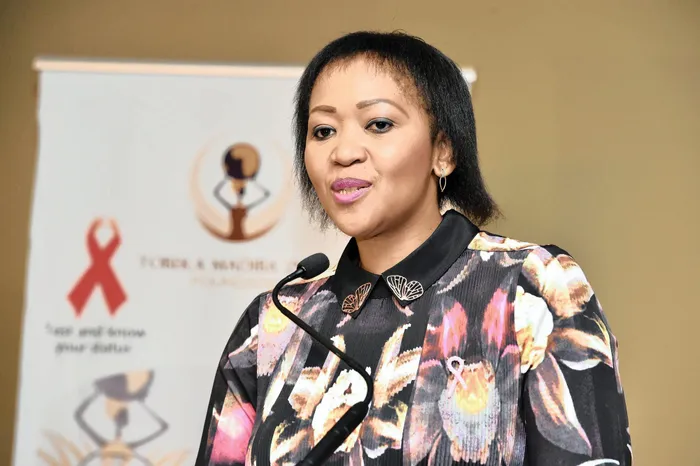First Lady calls for awareness of killer cancers

FIRST Lady Thobeka Madiba-Zuma has called for greater effort and more attention to the fight against breast and cervical cancer. FIRST Lady Thobeka Madiba-Zuma has called for greater effort and more attention to the fight against breast and cervical cancer.
DURBAN - FIRST Lady Tobeka Madiba-Zuma has called for more education on the fight against cancer which, she said, was killing more women.
Madiba-Zuma said early detection was the key to saving lives, so sharing information on breast and cervical cancer was paramount.
She said preventative care, which included routine check-ups, mammograms and pap smears, was even more vital in developing countries like South Africa where millions still lived in poverty.
“If cancer is detected early, it’s far easier to cure and much less costly to treat. We can save money, we can save lives and we do right by the people we love,” she said.
Although cancer claimed more victims, it received a tiny fraction of the aid that went to fighting HIV and TB. As a result the poor were the hardest hit.
“Poor cancer sufferers are not only more likely to die, but more likely to suffer pain and financial distress.
“When researchers asked patients with terminal cancer about their experiences, they spoke of emotional and severe physical pain and financial worries,” said Madiba-Zuma.
Through her organisation, the Thobeka Madiba-Zuma Foundation (TMZF), she prioritises women’s health issues with a focus on reducing the incidence of breast and cervical cancer, as well as HIV/Aids and TB.
“We raise awareness, break taboos and extend access to health care, particularly in rural communities, by closing the gaps that exist in our health-care system.
“We are committed to keep pushing the barriers and breaking the silence that defines grassroots community work,” said Madiba-Zuma.
She highlighted the fact that the number of women getting regular mammograms had increased. In 2014 South Africa had started routine immunisation of the human papillomavirus (HPV) vaccine, targeting schoolgirls between nine and 12. The vaccine prevents infection by certain types of the human papillomavirus, which causes cervical cancer.
While a lot of progress had been made in the lobbying for funding for research and treatment, Madiba-Zuma said more had to be done on the survival rate.
“We know we’re not finished when nearly one in eight women is still diagnosed with breast cancer in their lifetime, one woman dies every three minutes, and that’s something we don’t often discuss,” she said.
Madiba-Zuma said a healthy diet, physical activity and control of alcohol intake as well as combating obesity could eventually have an impact on reducing the incidence of breast cancer in the long term.
She emphasised that breast self-examination was an integral part of women’s health.
“I am also asking people to be bold and to talk to their daughters about breast health, so they know how to self-examine and which signs to look out for which could indicate breast cancer.
“It’s really important for mothers and fathers to sit down and have that conversation with their daughters/sons,” she said.
Madiba-Zuma said that at the rate cancer was killing people, it seemed like an uphill battle to beat. But it was possible to conquer it if it was to be prioritised as it was
an emergency. All stake-
holders should work together, she said.
To those who have been diagnosed with cancer Madiba-Zuma said: “Be strong and courageous. Breast cancer does not define who you are. Allow the support and love of those around you get you through.”